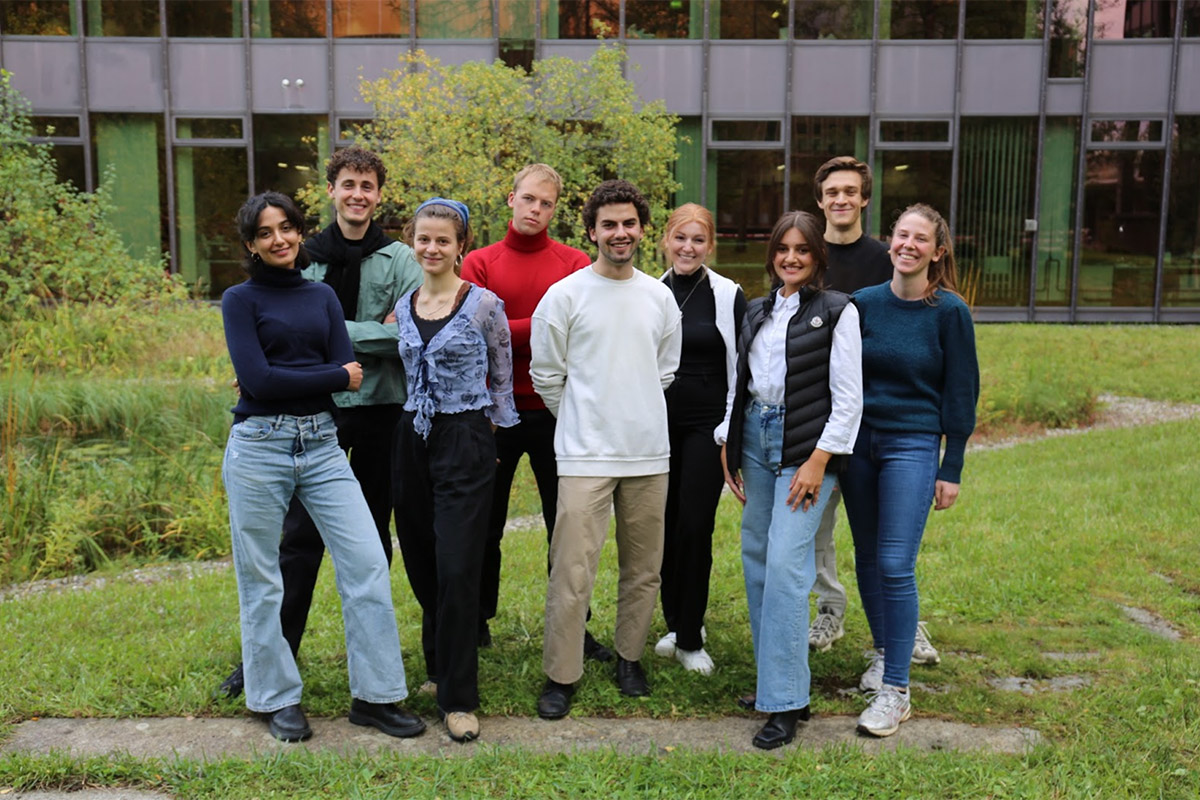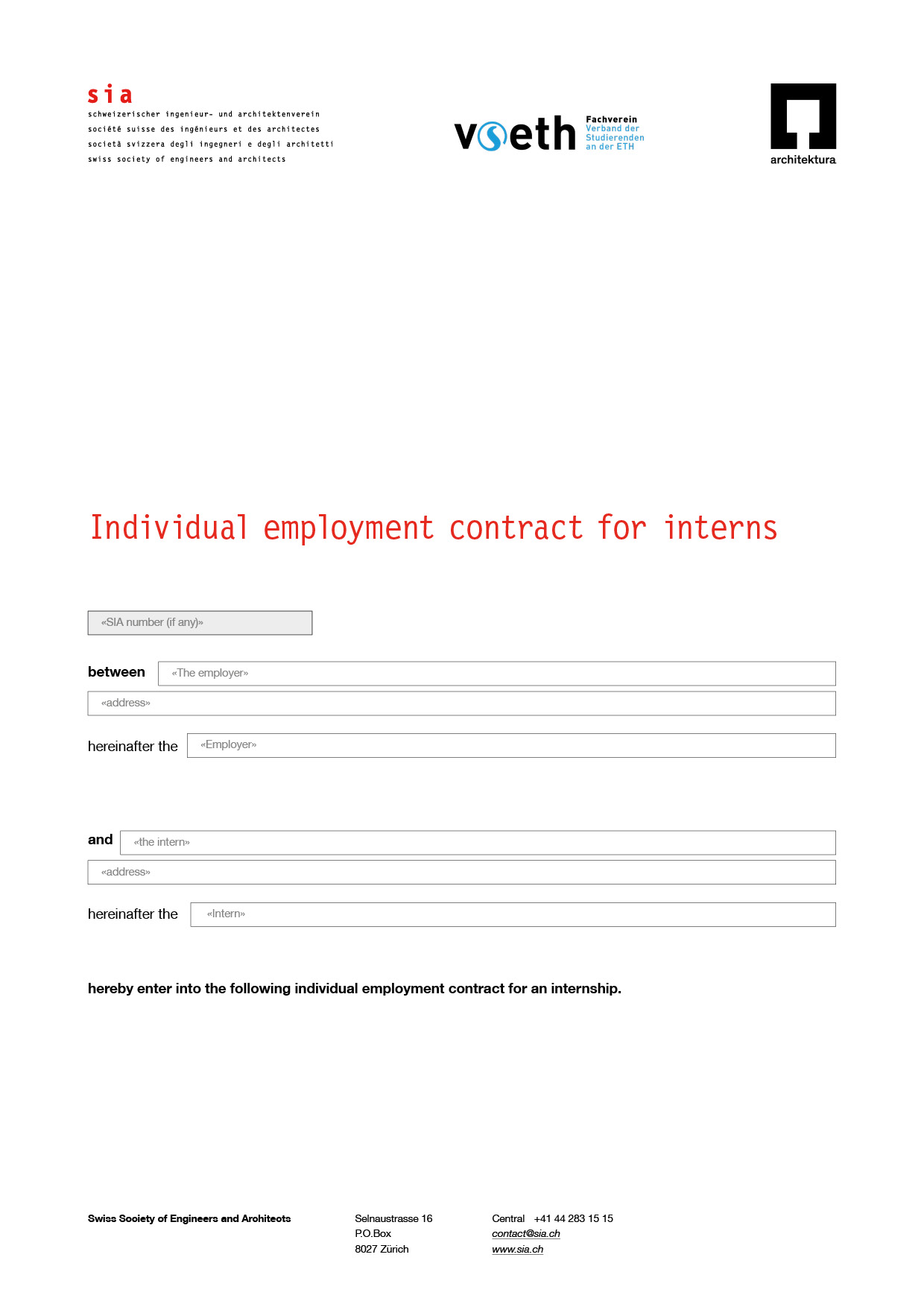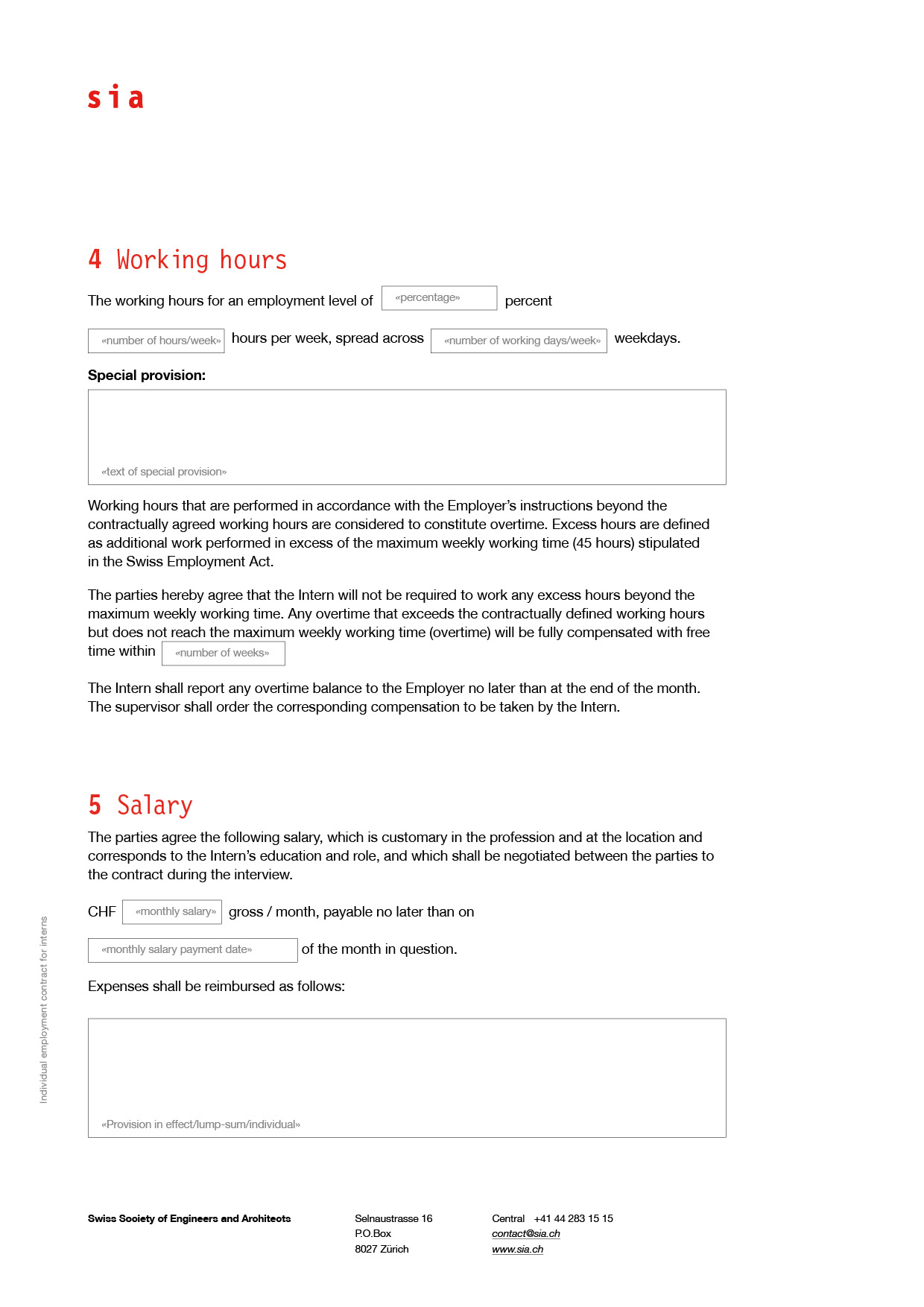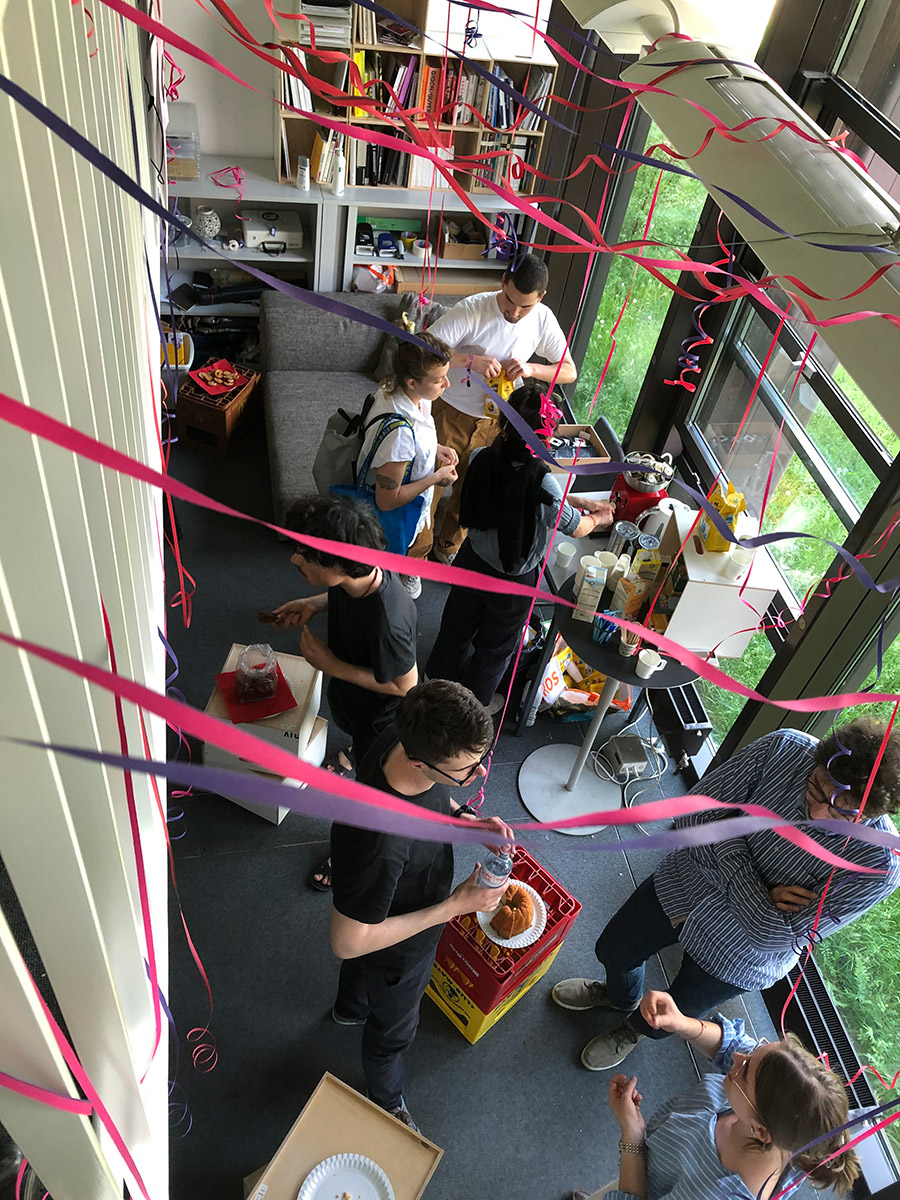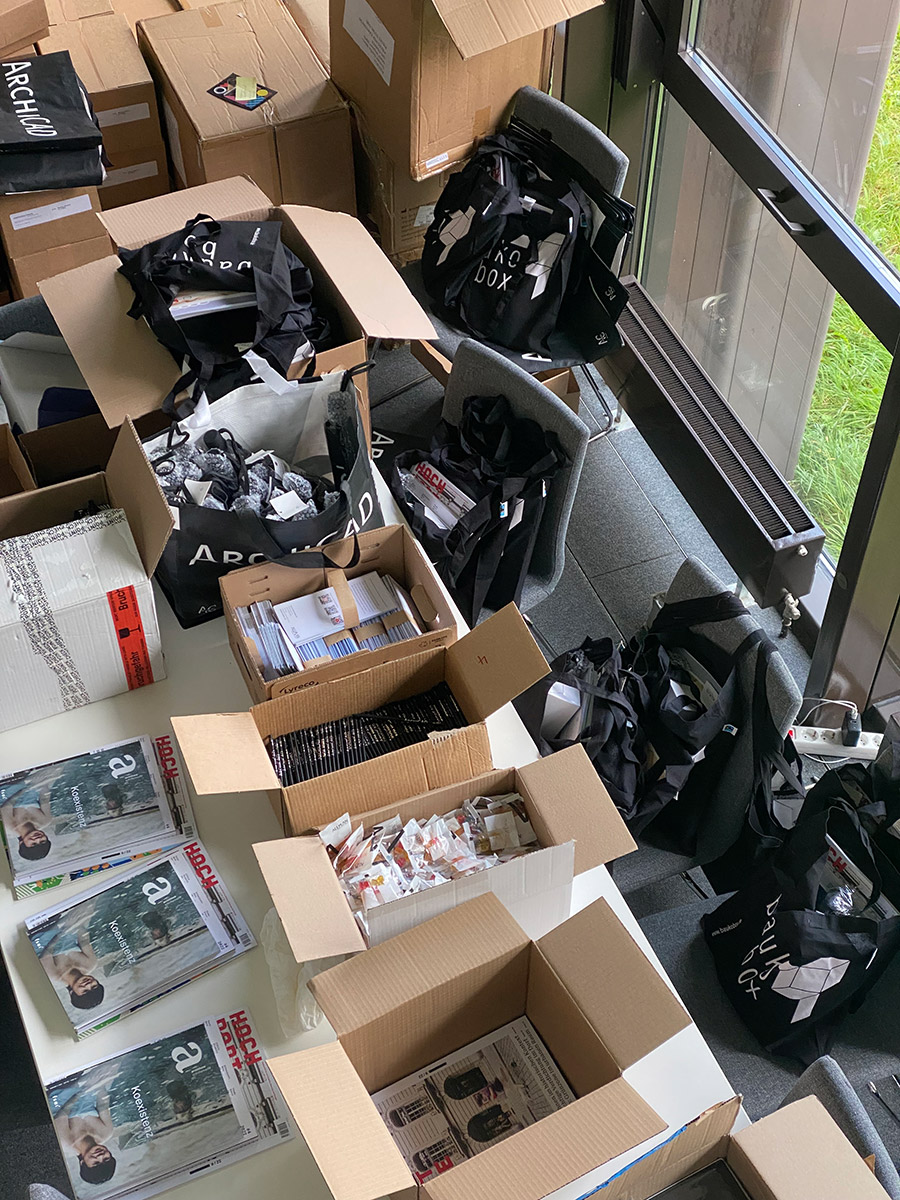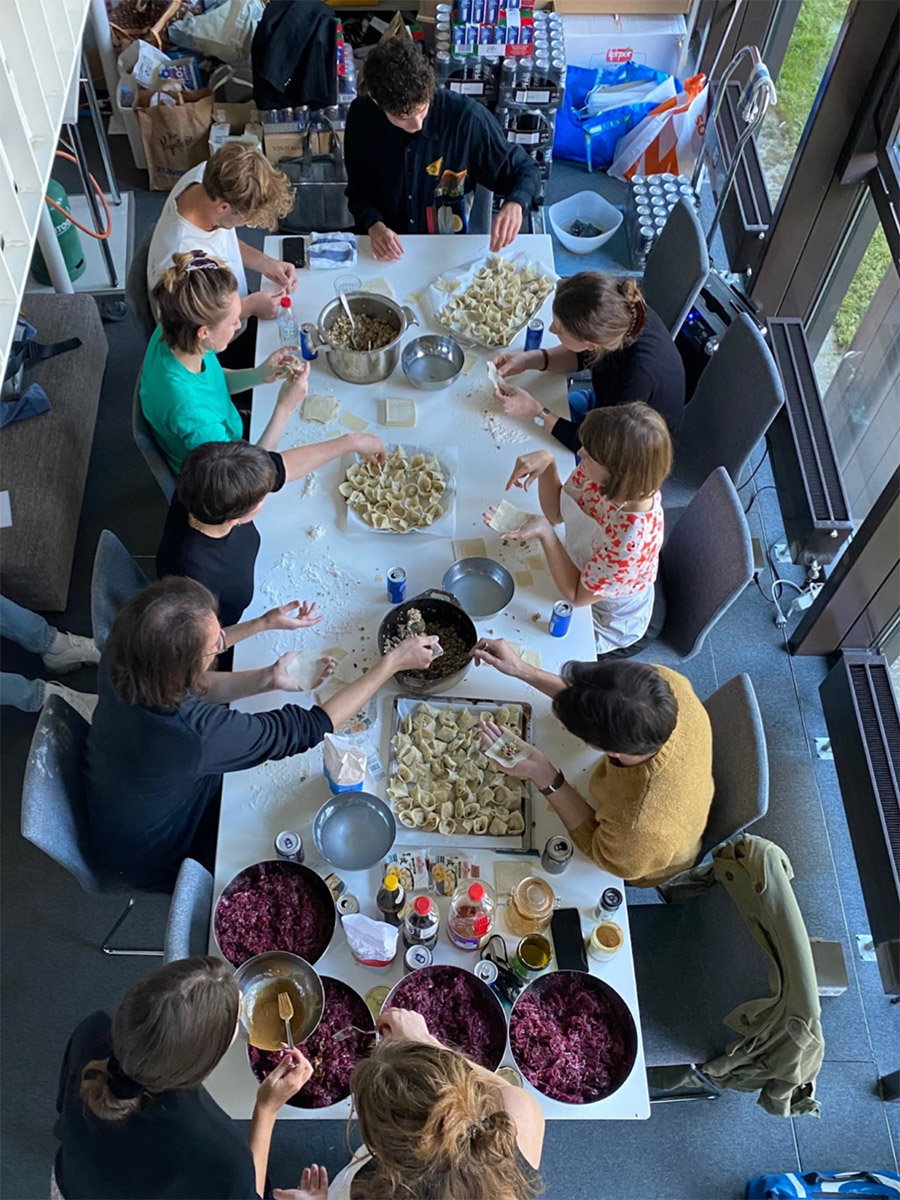22/019
architektura
Association of architecture students
ETH Zurich
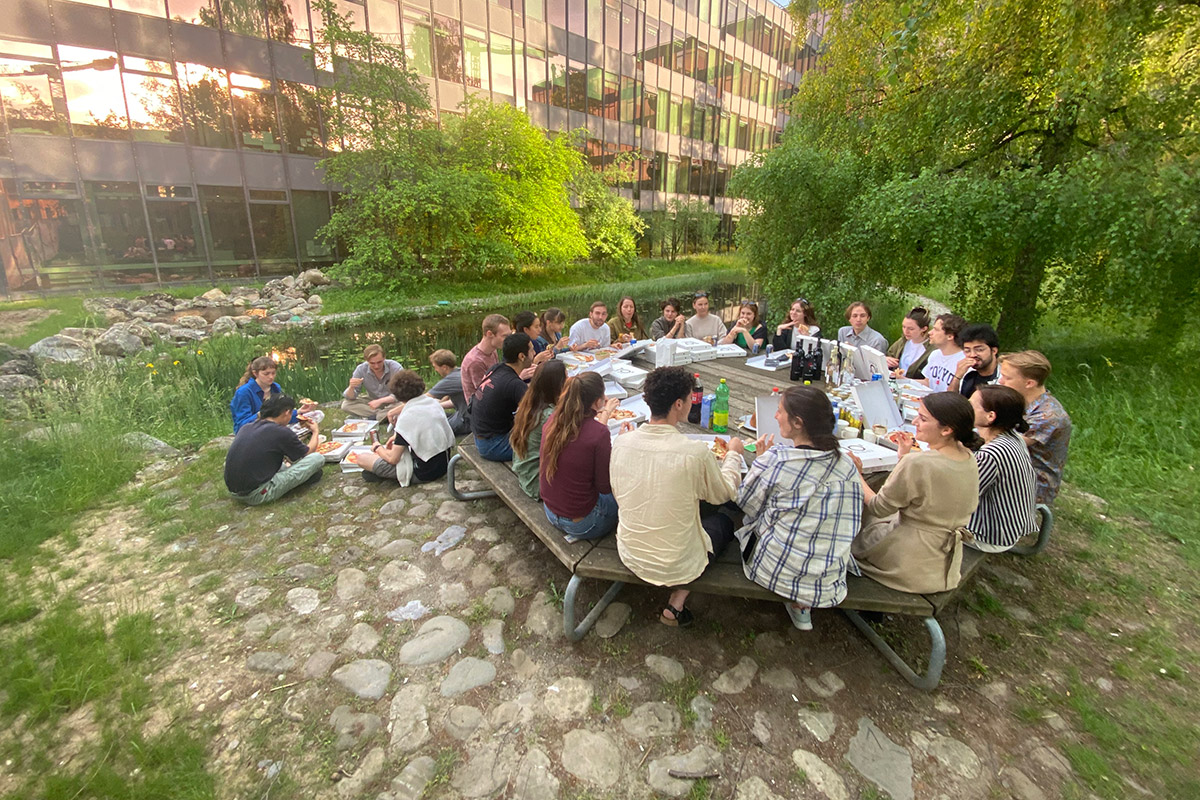
«We recommend: Being open but meanwhile reflective. Use a critical lens while studying architecture.»
«We recommend: Being open but meanwhile reflective. Use a critical lens while studying architecture.»
«We recommend: Being open but meanwhile reflective. Use a critical lens while studying architecture.»
«We recommend: Being open but meanwhile reflective. Use a critical lens while studying architecture.»
«We recommend: Being open but meanwhile reflective. Use a critical lens while studying architecture.»
Please, introduce yourself and your aim…
We are architektura, the association of architecture students in the Department of Architecture at ETH Zurich. We are strongly committed to developing and improving university policies and making the architecture studies a better experience. Therefore, we engage in different departmental bodies, such as the Teaching and Departmental Commissions, The Parity and Diversity Commission and beyond. We actively participate in the shaping of the ETHZ D-ARCH curriculum and raise important issues for students.
Besides the representation in the political-school bodies we organise various events throughout the semester to enrich the social exchange in the architecture studies. We provide different services for students like food and coffee during the most stressful periods.
Furthermore, our association organises visits to construction sites as well as discussions and lectures. We have our own budget, and finance and support student-initiated projects each semester, which enables us as students to generate, diversify, and contribute to the discourse, activities and spaces in the Department.
Why did you start your own project focusing on internship and salaries within the framework of architektura?
We initiated this project because we as students felt a lack of knowledge on the obligatory internship all of us need to complete during the architecture studies. What is the exact framework, contract and payment? These initial questions led to discussions and ultimately the creation of a sample contract (Link in German / Link in English) in collaboration with the sia (Swiss Society of Engineers and Architects).
The internship is an important part of the course of studies for us. Some skills and knowledge can only be experienced and learned through real-world practice. As students, we greatly benefit from the daily work insights, experiences and ultimately learn through the internship. At the same time, we are working and producing for an office and as students in the working world, we are cheap labour. Which raises questions and sometimes issues that we were interested in. Regarding payment, work ethics, the type of work we do in an office, as well as aspects we are unversed in it and in which the employer has a responsibility to teach us. What can students expect from the office and what can an office expect from a student?
We believe that we should turn away from certain present-day work practices and (over)work-culture – contracts with a fixed number of unpaid overtime hours are an example that stand for this kind of culture we want to abolish. We wanted to investigate what the rights and duties of interns actually are introduce a new standard with this project, to help everyone – as well offices – to orient themselves. Informing students about the differences, and disparities between the realities of internships, the rights they have and collect experiences and make them transparent. At the beginning of the project, we launched a survey for students that covered issues such as salary, office culture and overtime. Over three weeks, we were able to collect 143 responses. The data collected led to constructive discussions both within and outside the department and allows for a better overview of internships for students. The results can be viewed here: Sample Contract for Internships – in German – in English.
Tell us more about the Internship-Salary project. Why is this topic important to you and what is your goal?
As an association that uses its voice and resources to improve the overall experience of students it was important for us to engage with the observed issues regarding the obligatory internship from our study as mentioned before. By doing so we address an integral part of our studies, even if it is not directly connected with the education taking place at the Department of Architecture of ETH Zurich.
We wanted to gather internship experiences and publish them, to create transparency and provide reference points for students to compare aspects such as wages, working conditions and employment contracts. Our aim was to formulate a code of conduct on the basis of the survey results. Together with the sia we formulated a sample contract, which is now available for everyone. By publishing the results of the survey on our website and through social media, students have a profound base of information before they apply. There are now references on the average of salaries, on the appropriate handling of overtime hours and on certain framework conditions of the working culture. These references help already during the job search and interviews as well as thereafter when you are – maybe for the first time – confronted with a contract.

Results Survey | Overtime (Credits: architektura 2022)
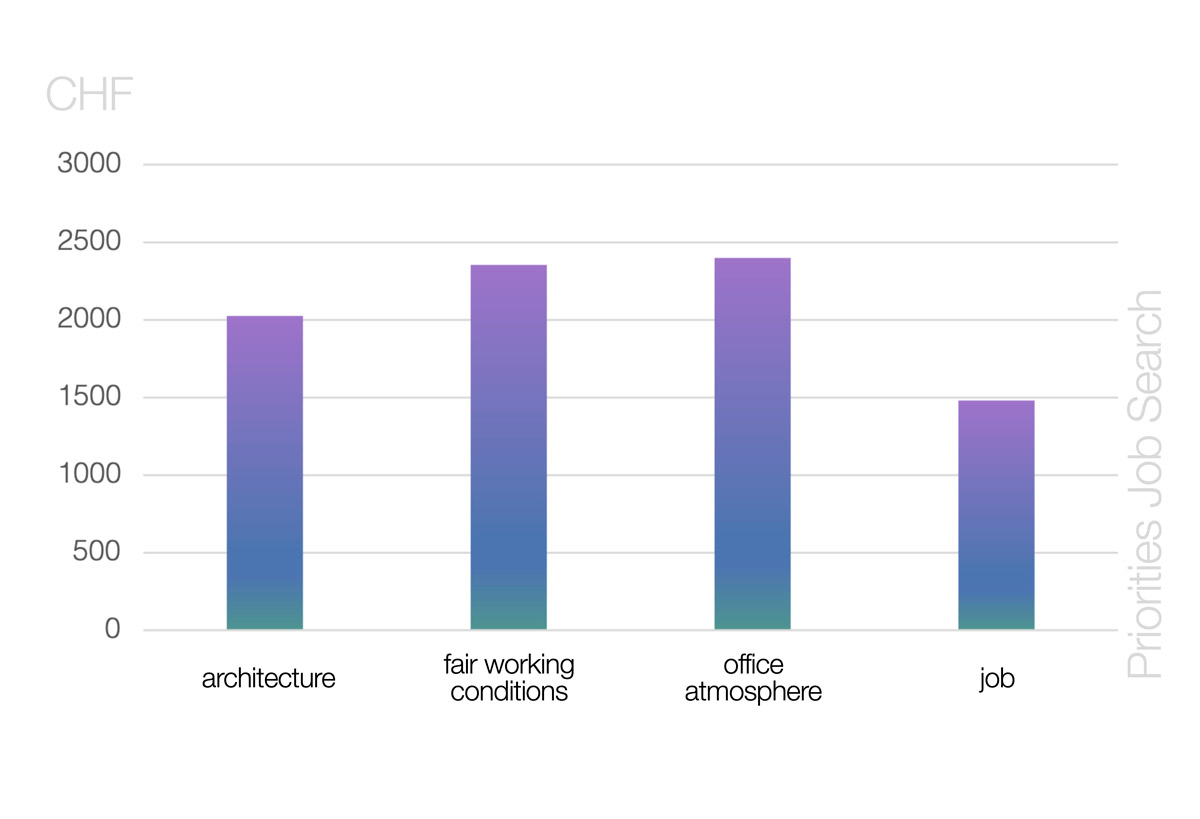
Results Priorities | Overtime (Credits: architektura 2022)
How would you characterize architectural teaching at your university/at Swiss universities today?
The teaching at The Department of Architecture in Zurich is rigorous, critical and experimental. In recent years it has undergone a transformation. New teaching formats have been and are being tried out. For example, last winter we as architektura gathered over 600 signatures welcoming the introduction of the so-called “Fachsemester”. This new format allows students to do a semester research-project at a theoretical chair instead of a design project, broadening the expertise that we can build during our studies.
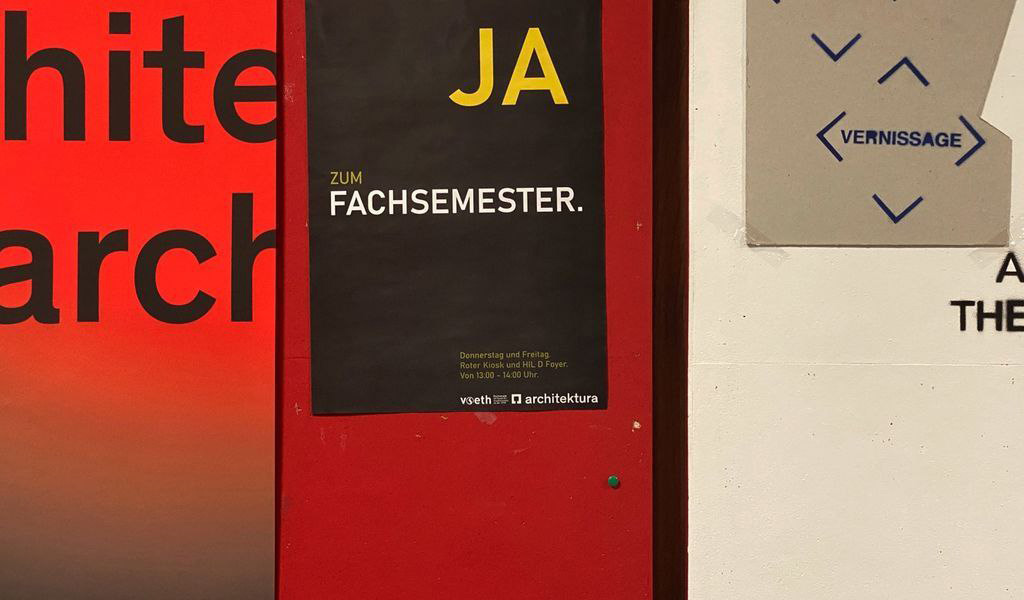
Poster Fachsemester (Credits: architektura, 2021)
Student initiatives are also an increasingly important part of our curriculum. For example, we organised the framework for a self-organised studio “SOS”, which is running this semester. “Unmasking Space”, another student initiative, is organising its own elective course for next spring. All these initiatives point to the need for more space to experiment. Architecture is a very broad discipline and so are the profiles of the students. That’s why we, as a professional association, are committed to ensuring that the curriculum not only remains a classical education, but also opens many (new) doors.
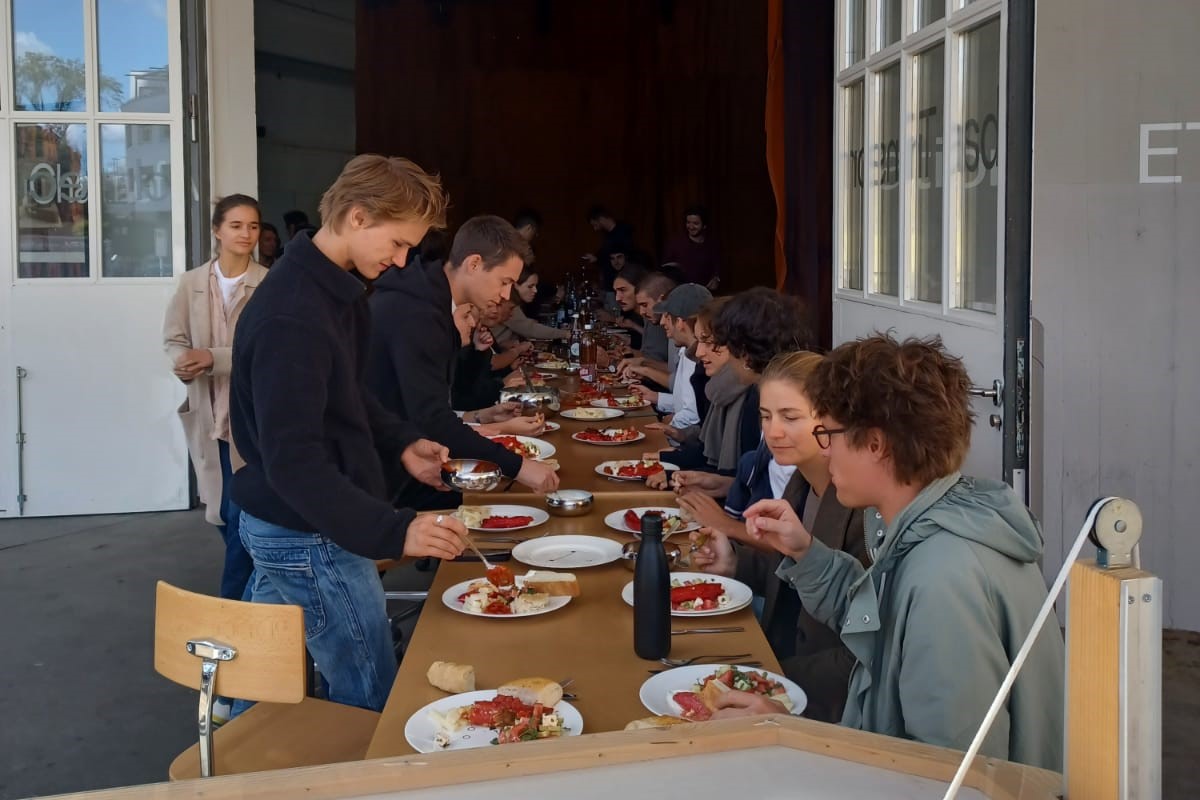
The self-organised studio cooking lunch for the whole studio (Credits: members of self-organised studio, 2022)
How do you understand the relation of theory/reflection, practice and teaching in architecture?
The linking of theoretical and practical knowledge is essential in architecture. The discipline builds very firmly on a broad basic knowledge in various fields, which is specifically brought into connection for the respective projects. A lot of research is done not only at D-ARCH, but also at other departments of the ETH, where a lot of knowledge is available that helps us in our architectural work. We therefore consider it important to have access to this knowledge in an academic context in order to transfer as much knowledge as possible into practice – i.e. during our projects in the studios or later in our professional practice.
What needs to change in the teaching of architecture according to you?
Architecture reflects society and society is constantly changing. Urban planning and building designs react to what is important to the human being, react to what helps the human being in a long-term perspective. Not only the building industry, but also teaching must therefore be open to change. It needs constant questioning and experimentation.
What does your desk/working space look like?
Our worktable is elongated and stands in the middle of the room in our office, parallel to the window facade, which opens a view of the Flora-Ruchat-Roncati garden. The office is quite lively, used by different people. We use our large table for board discussions, to work on individual projects for architektura or our semesters, during exam periods to study and discuss, or quite often simply to eat and drink coffee together. Our office also sometimes transforms into a kitchen, or a coffee-shop.
What essential actions do we need to take as architects now regarding a more sustainable future for everyone? From your perspective: What are the (political, legislative) influencing factors that matter most?
A change of perspective is needed regarding the handling of values. The construction industry operates in an economic system in which decisions are made objectively on the basis of financial values. Sustainability is difficult to measure in this decision-making process. How much, for example, does the destruction of one kilogram of CO2 cost? And how much more will rental income bring after a new replacement building?
Investors often only discuss the second question. But it is precisely with regard to sustainability that constant growth must be questioned, and common financial values rethought. In addition, the concept of sustainability does not only include ecological aspects; social sustainability must also be considered, especially in the discipline of architecture. And this is where the circle closes: If only the most economically efficient solution is considered, only a financially strong clientele will be addressed. For this change of perspective, we need an open culture of discussion, which already begins in our education.
If there were one skill you could recommend to a young architect to study in depth at architecture school: what would it be and why? What do you want to pass on to the next generation of young architects?
We recommend: Being open but meanwhile reflective. Use a critical lens while studying architecture.
Website: architektura.ethz.ch
Instagram: @architekturaeth
How is work + job board: architektura.ethz.ch/praktikum-job
Upcoming Events: "Das Praktikum – Rechte, Pflichten und Arbeitsbedingungen“, 14/11/2022, 12:00 – 13:00, Webinar
Interview: kntxtr, ah + kb, 10/2022
